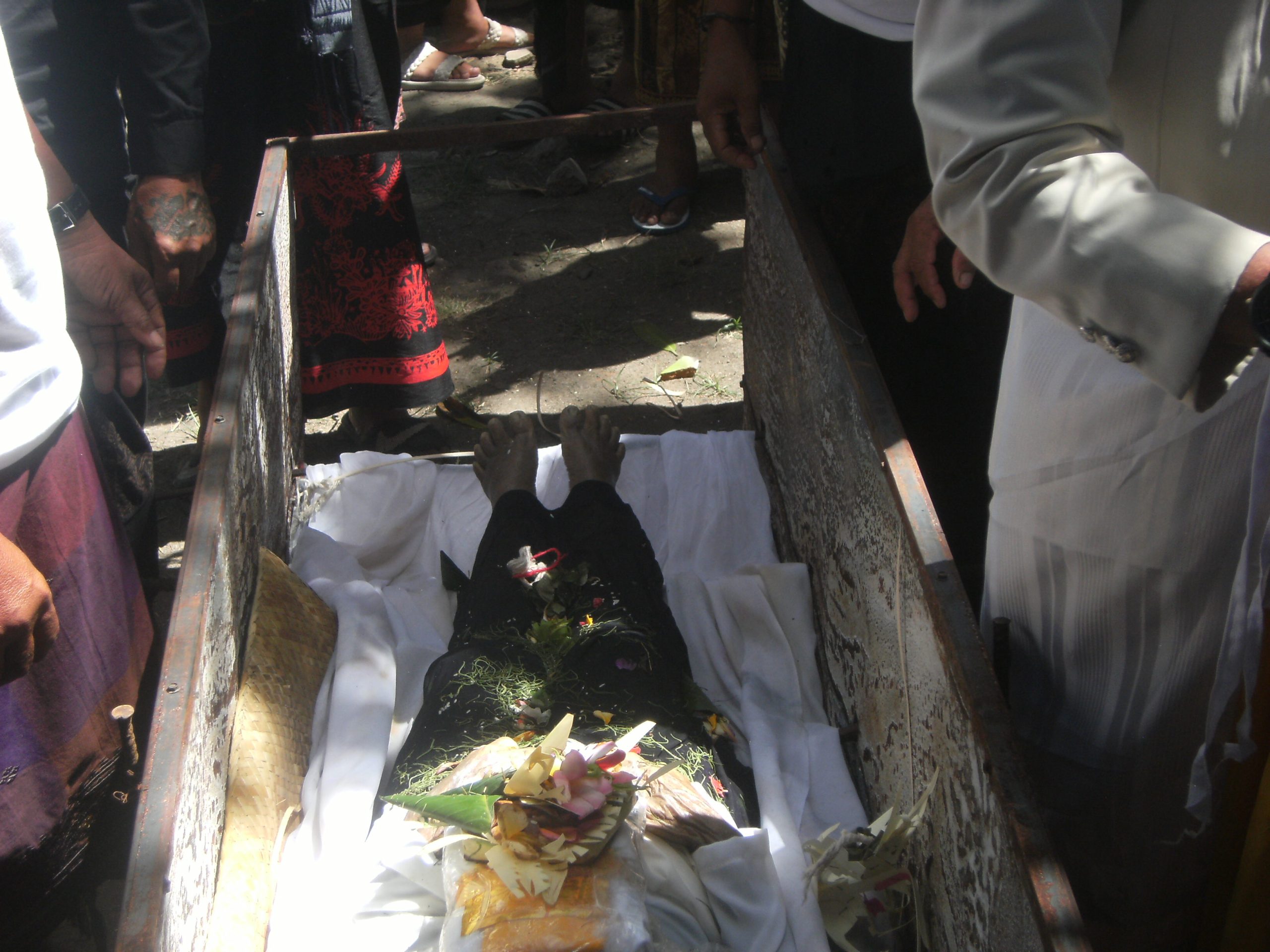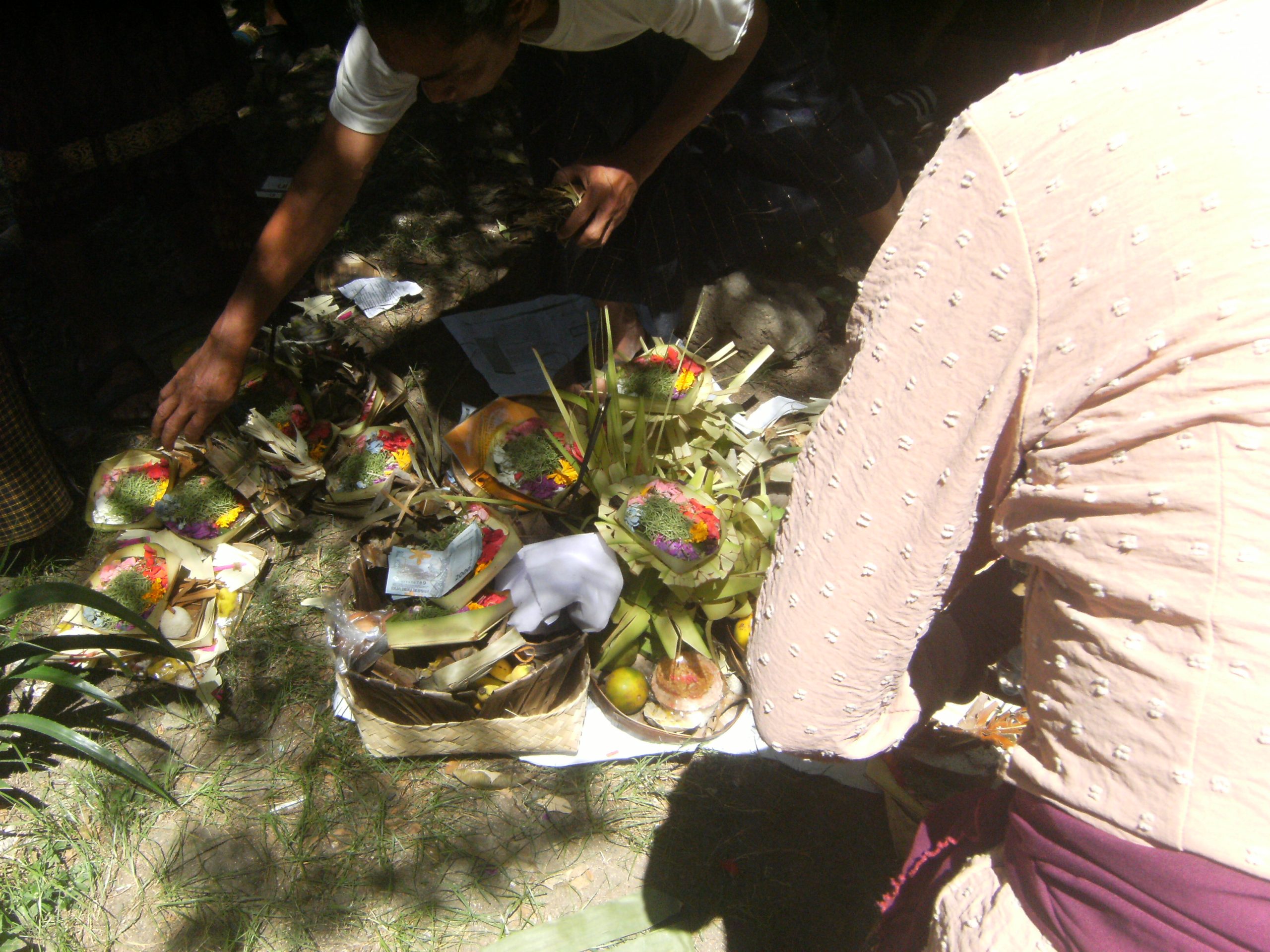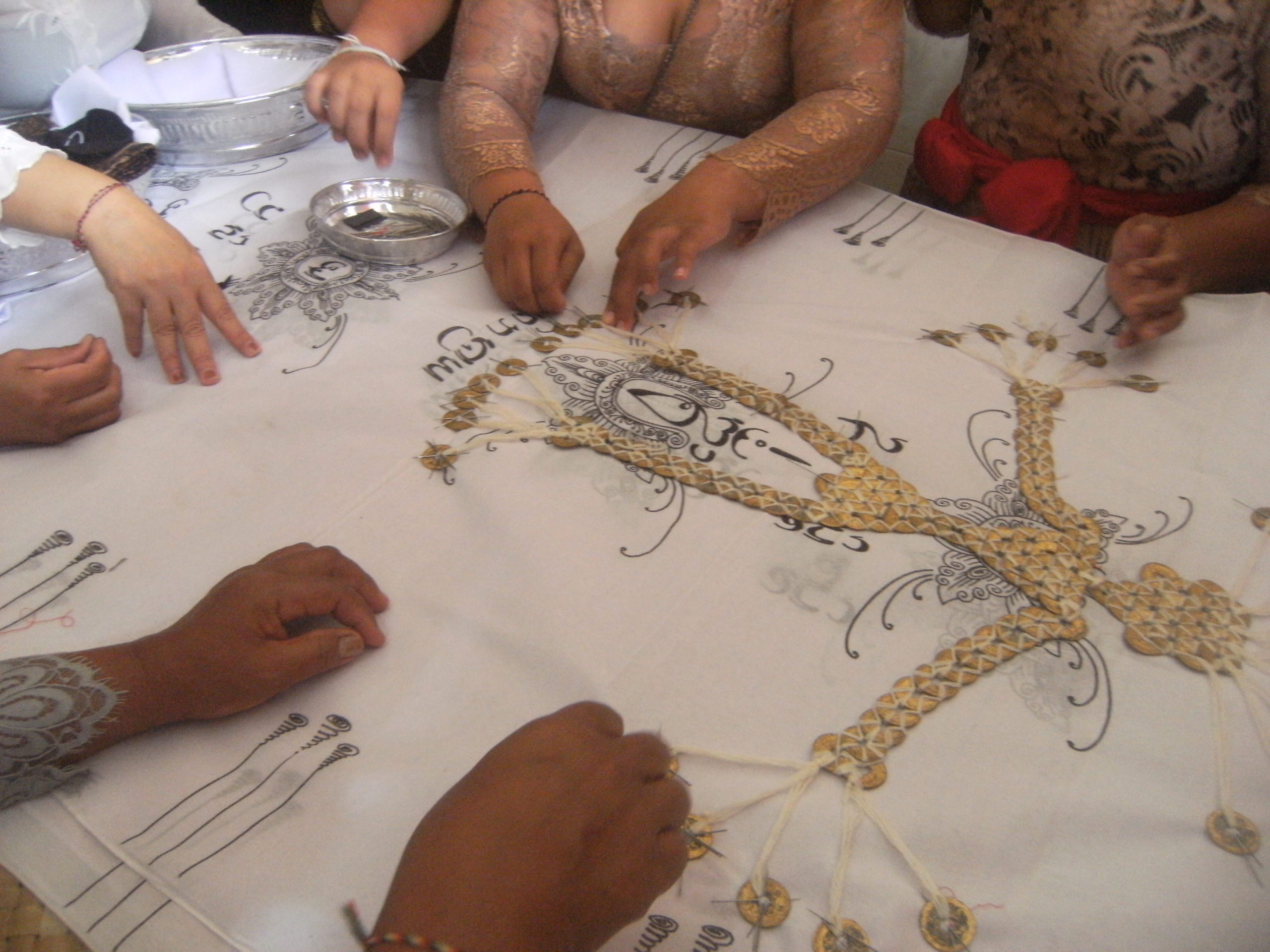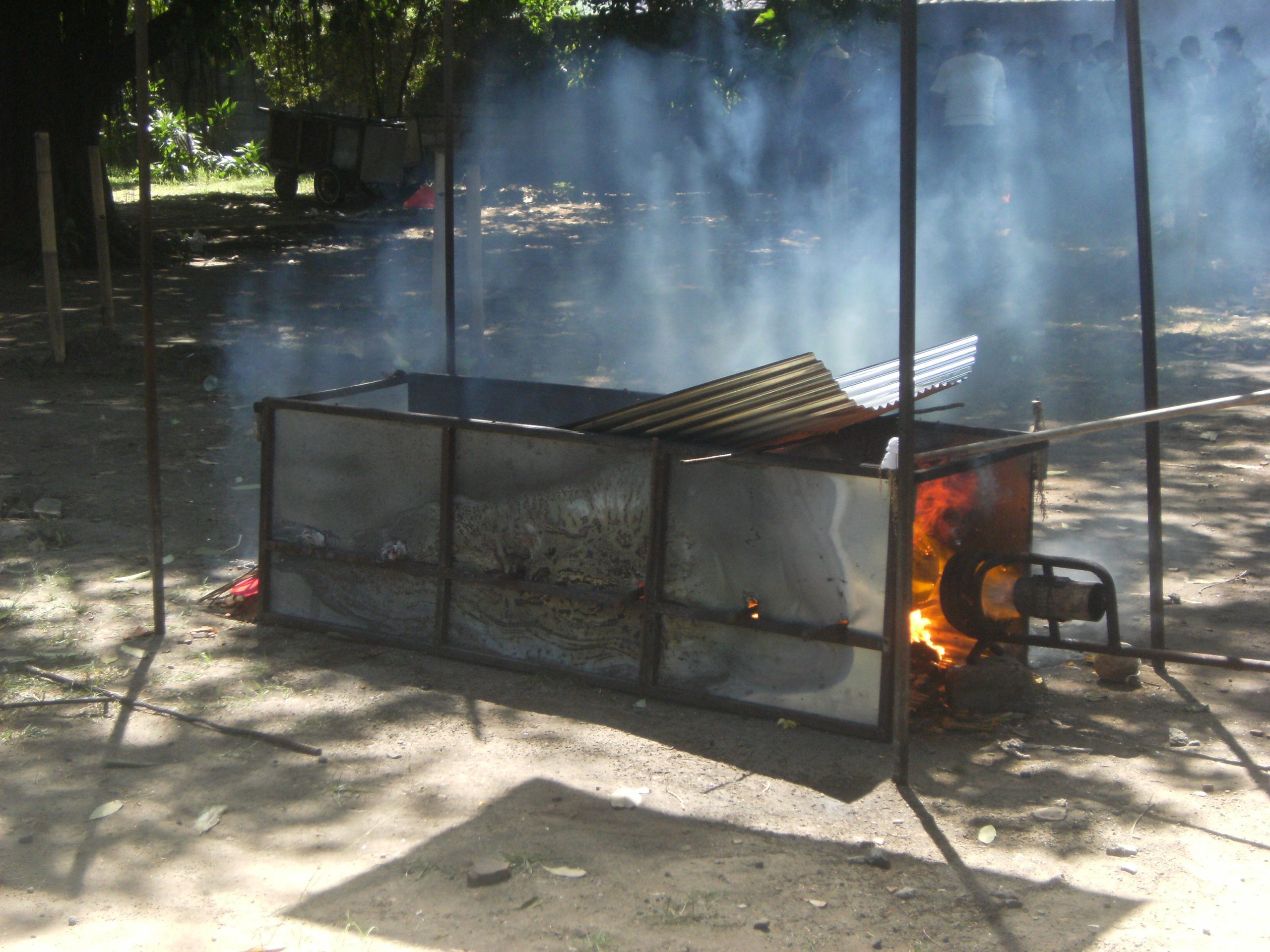Amor Ing Acintya / Rest in God's Light (Made Virgie Avianthy)
11min 21s – two-channel video
Synopsis
Amor Ing Acintya, is a saying often used by Balinese Hindu people when there is grief, especially in the event of someone who has died. Amor is a single or united soul, Ing means to, and Acintya is god. This film highlights the traditions carried out by the Hindu community in Bali when carrying out cremations. The cycle of human life that occurs continuously or in Balinese Hindu belief is called punar bhawa, this is the part that influences the body and spirit to meet or end in a certain period.
Through two points of view given in one channel, it shows how the perception of death can be interpreted as the departure or end of life for those left behind, but what if the spirit interprets it as the beginning of a new life?
Artist Statement
In this experimental documentary film, I try to articulate the cycle of human life that is believed by the Balinese Hindu community. Through experimentation in this work I use the perspective of someone who did not grow up and was born in Bali but became part of the traditions and cultural identity through what was passed down by families who experienced urbanization. By looking at it from afar, I found several things that could be compared, namely how the Balinese people and the people on the island of Java see death itself.
The Balinese Hindu community believes in a philosophy of ‘Punar Bhawa‘ or reincarnation which will continue to occur in the human life cycle until they can finally achieve ‘Moksa’, this makes the cremation tradition carried out by the Balinese Hindu community celebrated without sadness, instead the strains of baleganjur (gamelan) are played. rousing. However, people on the island of Java do it in silence. In these two points of view, I try to question the meaning of the Ngaben procession itself. Ngaben is the departure of someone who has made memories with people who have ties, and Ngaben is interpreted as the beginning of a new life to usher the soul to meet its new body and start from zero with a different time, name and body.
Through the narrative that is present in this film visually, the audience is invited to look back at a tradition that they may have never experienced. The Balinese Hindu community interprets this philosophy of life over death as something that has been passed down from generation to generation as a tradition. By raising this narrative, I try to share traditions that I think not many people know about, and invite the audience to question together their traditions that have never been heard or shared as an untold stories.




Made Virgie Avianthy

Made Virgie, A film student currently studying at an Indonesian educational university, majoring in film and television with a concentration in documentary and experimental film studios. Have an interest in culture and history as an issue in making film projects as a form of preservation and awareness of human identity in traditions and beliefs.
